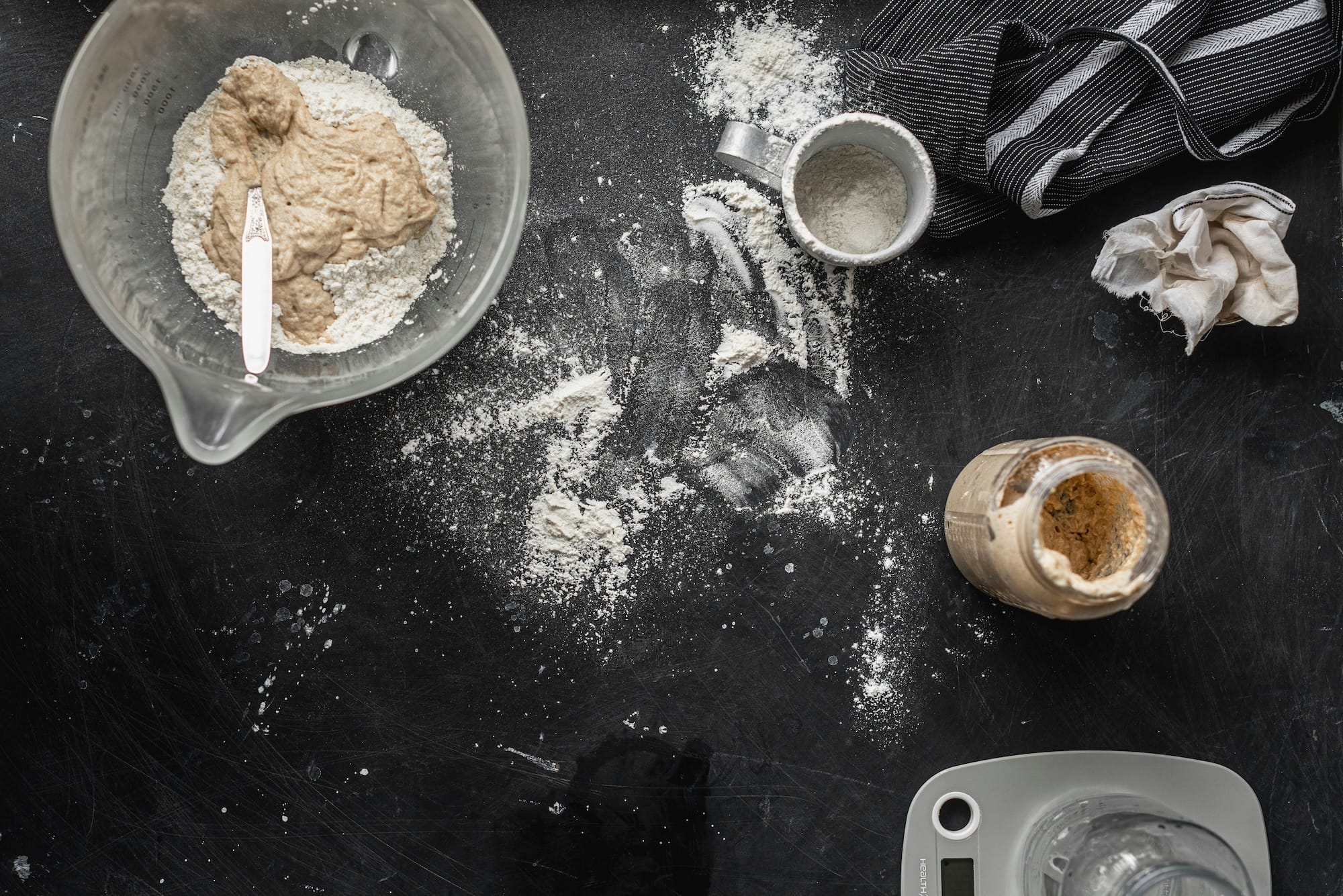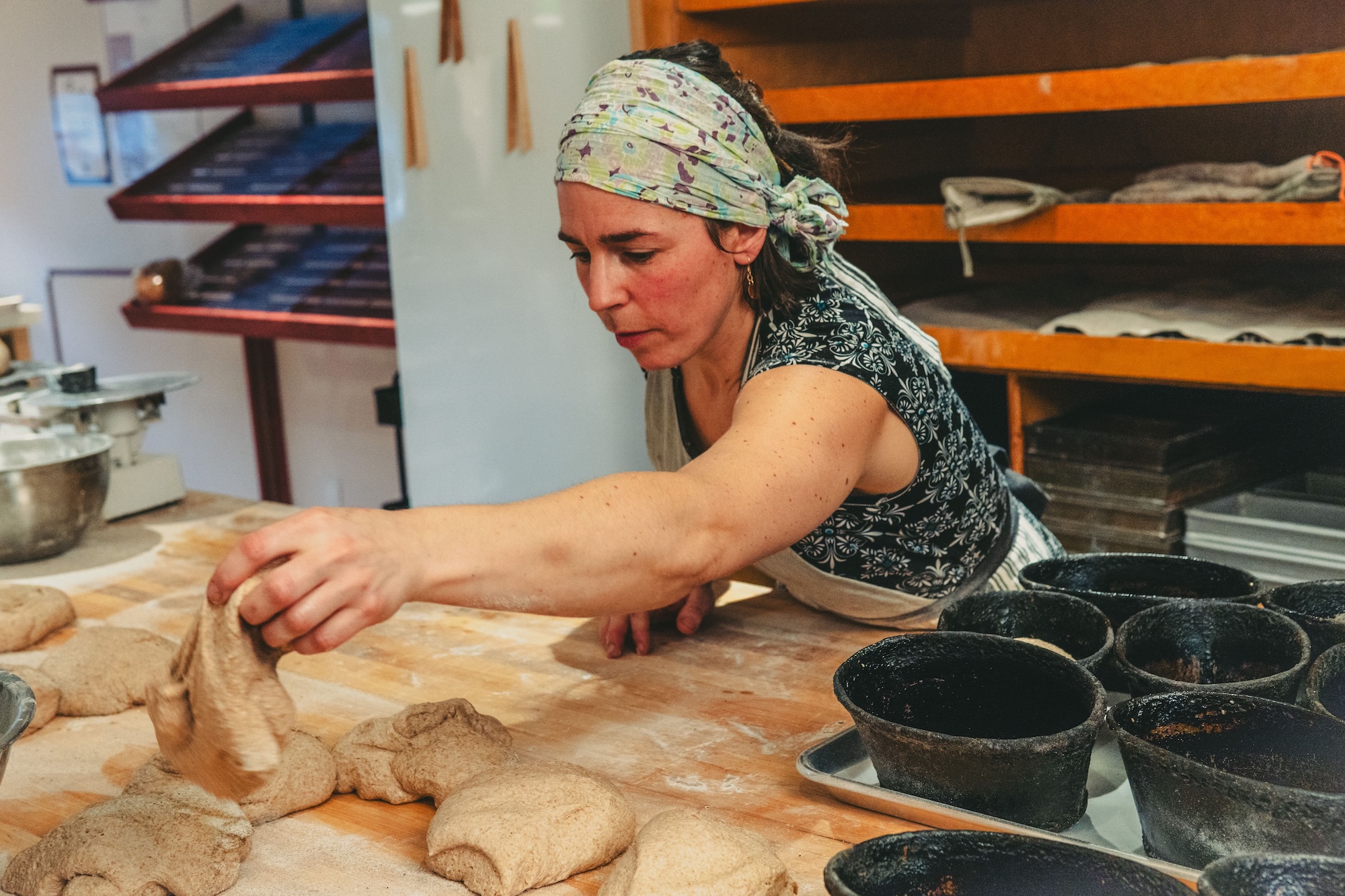Baking Techniques
How to Feed & Maintain Sourdough Starter
September 24, 2025
8 min read
If you’ve started your sourdough journey, you know the heart of every great loaf is a healthy starter. Feeding sourdough starter is simple, but there are a few important details that can make the difference between bread that rises beautifully and bread that falls flat.

In this guide, we’ll cover everything you need to know, including:
- How often to feed sourdough starter
- How to feed sourdough starter from the fridge
- How much to feed sourdough starter
- When to feed sourdough starter
- How to maintain sourdough starter
- When is sourdough starter ready
- Can sourdough starter go bad
- Can you buy sourdough starter online
Plus, you’ll find troubleshooting tips, storage advice, and answers to common sourdough questions like:
- How to revive sourdough starter
- Why is my sourdough not rising
- Is sourdough gluten-free
- How to dehydrate sourdough starter
- How long does sourdough starter last
- The best flour for sourdough starter
How Often to Feed Sourdough Starter
- Room temperature starters usually need feeding once every 12–24 hours.
- Refrigerated starters can be fed once a week (or whenever you plan to bake).
The more often you bake, the more often you’ll want to feed your starter to keep it active and bubbly.
How to Feed Sourdough Starter from Fridge
If your starter has been resting in the fridge:
- Remove it from the fridge.
- Discard about half of the starter.
- Feed with equal parts flour and water (by weight).
- Let it sit at room temperature for 6–12 hours until bubbly before using.

How Much to Feed Sourdough Starter
A standard feeding ratio is:
- 1 part starter : 1 part water : 1 part flour (by weight).
For example, 50g starter, 50g water, 50g flour.
This keeps your starter balanced and prevents it from becoming too acidic.
When to Feed Sourdough Starter
Signs it’s time to feed:
- It has doubled in size and starts to deflate.
- It has been 12–24 hours since the last feeding.
- It smells sharp, acidic, or “hungry.”
How to Maintain Sourdough Starter
- Keep it in a glass jar with a loose lid.
- Use filtered or dechlorinated water.
- Stick to a regular feeding schedule.
- Refrigerate if baking less often.
Consistency is key!
When is Sourdough Starter Ready?
Your starter is ready to bake when:
- It has doubled in size within 4–6 hours of feeding.
- It passes the “float test” (a spoonful floats in water).
- It smells pleasantly yeasty and slightly fruity.

Can Sourdough Starter Go Bad?
Yes, starters can go bad. Signs include:
- Mold (pink, orange, or fuzzy spots).
- Strong rotten or chemical smell.
- No activity even after several feedings.
If you see these signs, it’s safest to start over.
Can You Buy Sourdough Starter?
Yes! Many bakeries, online shops, and sourdough communities sell or share starter cultures. Buying one can save time since it’s already active and mature.
How to Revive Sourdough Starter
If your starter looks sluggish:
- Feed it with fresh flour and water every 12 hours for 2–3 days.
- Keep it at room temperature.
- Be patient — even neglected starters can bounce back.
Why is My Sourdough Starter Not Rising?
Common causes:
- Temperature too cold — keep it between 21–26°C (70–78°F).
- Not enough food — feed with equal flour and water by weight.
- Starter too young — it may need more days to mature.

How to Dehydrate Sourdough Starter
For long-term storage:
- Spread a thin layer of active starter on parchment.
- Let it dry completely.
- Break into flakes and store in an airtight jar.
To reactivate, soak flakes in warm water and resume feeding.
Read More: What Is Sourdough Discard and What to Do With It
FAQ
Q: Is sourdough gluten-free?
A: Sourdough bread is not gluten-free if it’s made with wheat, rye, or barley flour. These grains naturally contain gluten. However, the fermentation process in sourdough allows wild yeast and lactic acid bacteria to break down some of the gluten.
Q: How often do I need to feed my sourdough starter?
A: Sourdough starter usually need feeding once every 12–24 hours. If kept in the refrigerator you can feed it around once or twice a week.
Q: How long does sourdough starter last?
A: With proper care, a starter can last indefinitely. Some starters are decades, even centuries old.
Q: What do I do with sourdough discard?
A: Sourdough discard has many uses and can be used in both sweet and savoury recipes, so don't throw it away. Read our full article on What is Sourdough Discard and What to Do With It?
Q: What flour is best for sourdough starter?
A: Whole wheat or rye flour works well for starting; once established, bread flour is perfectly fine for feedings.
Feel free to contact us if you have any further questions or inquries!
Final Thoughts
Caring for your sourdough starter might feel intimidating at first, but with a little practice it becomes second nature. A well-fed starter rewards you with healthier, more digestible bread full of flavour and character.
At La Ruelle Bakery, we love sharing the tradition of sourdough with our community in Nelson, BC. Whether you’re baking at home or enjoying a fresh loaf from our bakery, sourdough is more than bread — it’s a living connection to food made with care. Explore our products here or learn more about La Ruelle Bakery and discover the magic of French Canadian baking!
With love, La Ruelle Bakery